Our Custom Ink Fundraising Campaign Has Closed
Need shirts for your next group event? Create your own custom t shirts.
Interested In Fundraising With Custom T-Shirts? Start Your Own Custom Ink Fundraising Campaign
For Felicia


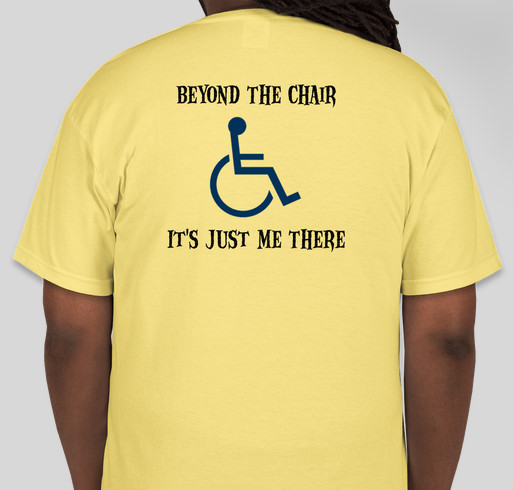

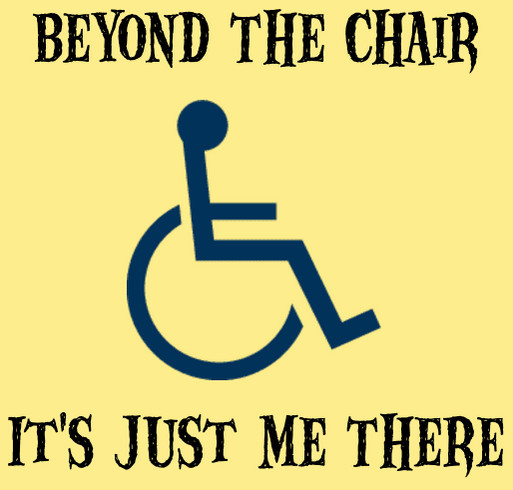

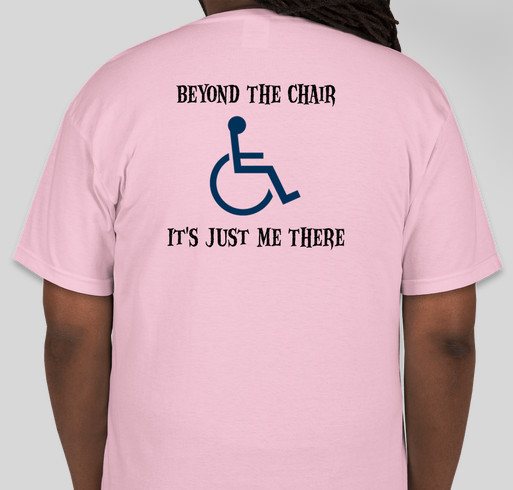

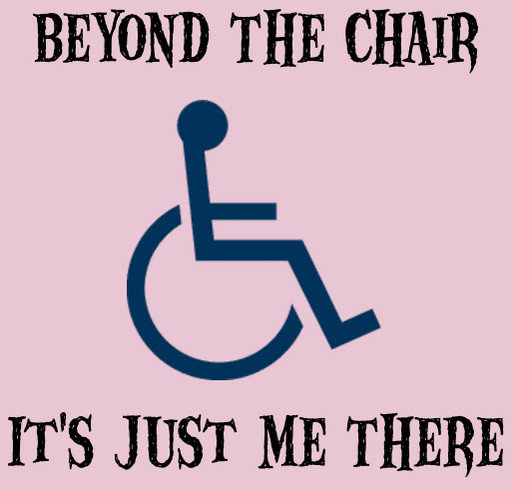

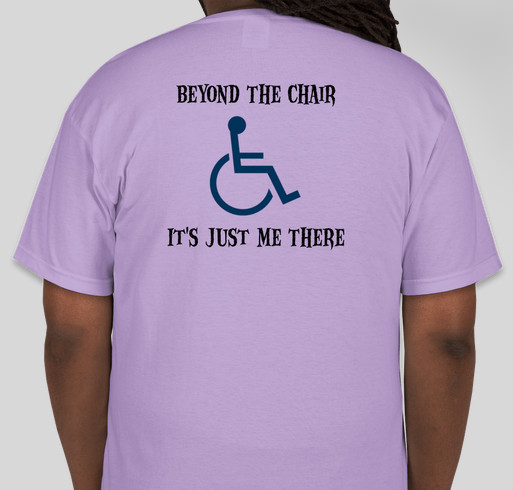

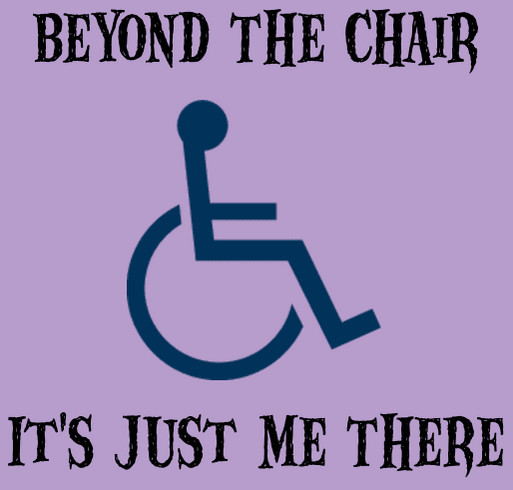

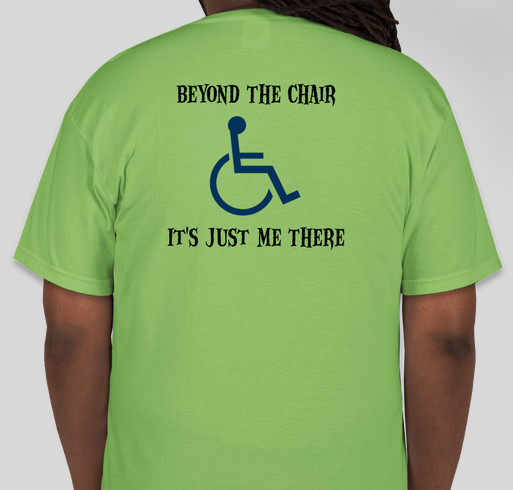

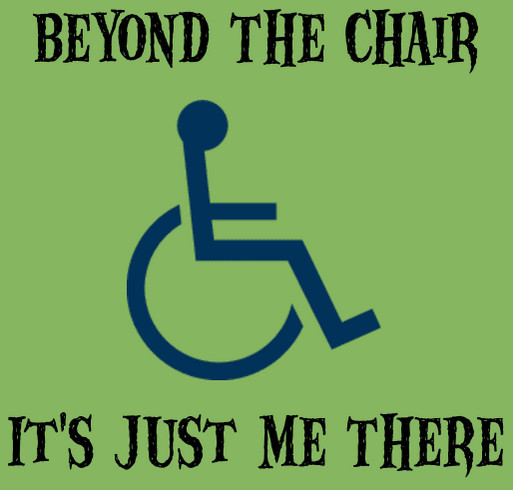

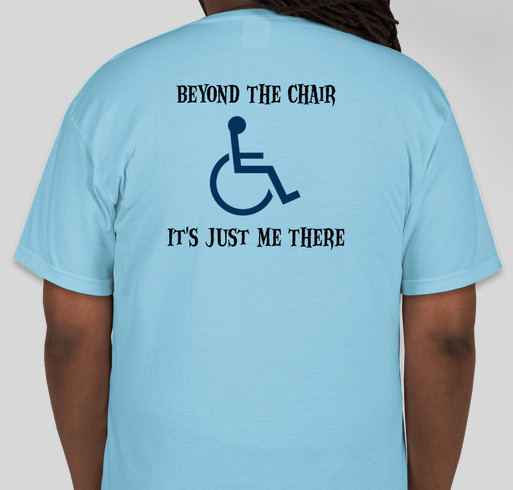

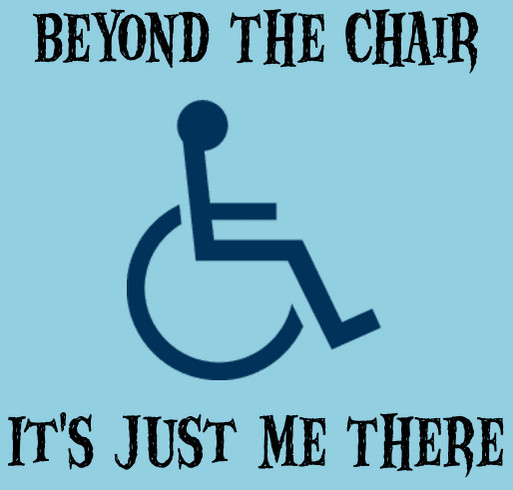

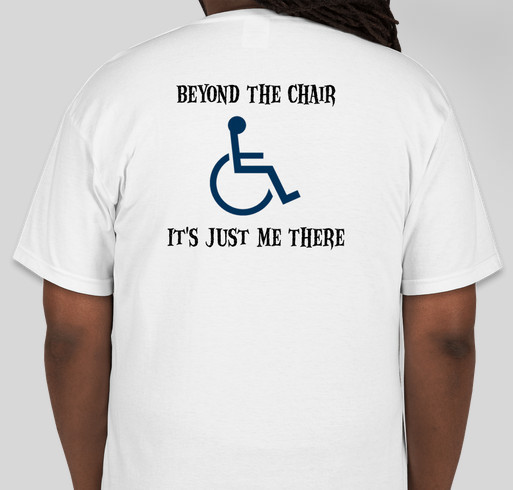

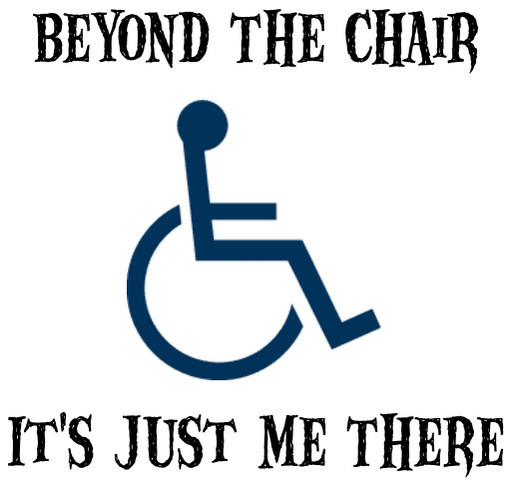
Gildan Ultra Cotton T-shirt
- Sizes S - XXXXL
- View Sizing Guide
Gildan Ultra Cotton T-shirt
- Sizes YXS - XXXXL
- View Sizing Guide
Gildan Ultra Cotton T-shirt
- Sizes S - XXXXL
- View Sizing Guide
Gildan Ultra Cotton T-shirt
- Sizes YXS - XXXXL
- View Sizing Guide
Gildan Ultra Cotton T-shirt
- Sizes S - XXXXL
- View Sizing Guide
Gildan Ultra Cotton T-shirt
- Sizes YXS - XXXXL
- View Sizing Guide
We All Shine... With your support WE can help benefit Felicia. Let's get this Booster started! Please enjoy wearing your specially designed shirt to show support for other's. Thank you for helping by either sharing, purchasing a shirt or any donation.

About this campaign
Felicia Hermann, is a 20-year old individual diagnosed with congenital arthrogryposis and significant medical limitations. This has impacted Felicia’s fine motor, gross motor, and communication skills. Felicia requires the use of a ventilator to assist with breathing, drives a motorized wheelchair for mobility, and uses a communication device for expressing her needs, wants, and desires to all around her.
Here is another example of the barriers and challenges individuals with disabilities face receiving services in the most integrated setting appropriate to their needs. Without access to the needed supports and services, individuals with disabilities are placed at risk of or unnecessarily institutionalized on a regular basis. If you have any questions, please feel free to contact Sandyherma@aol.com.
Felicia lives at home, attends her neighborhood school, and participates in inclusive classes with and without other students with disabilities. She loves to “people watch”, interact and communicate with others, and participate in all facets of community live. She is currently in the process of an intrated employment assessment to determine her desires and abilities for future volunteer or employment opportunities. Felicia is one of the lucky individuals that receive services through the Intellectual Disability (ID) Waiver. These ID Waiver services are designed to ensure that her health and safety is maintained in her home and community and prevent placement in an institution. Significant barriers and challenges have recently surfaced that now could jeopardize the full integration of Felicia and force her into an institutional setting, regardless of her desires or our families desires. In August, 2014, a preauthorization request was submitted by my daughter’s Case Manager through the Community Service Board (CSB) to the Department of Behavioral Health Developmental Services (DBHDS) for the installation of an accessible 375 foot concrete patio installed in the grassy area on the shady side of her home. This concrete patio was to provide Felicia a safe and accessible location for independently driving her 450lb power wheelchair outside without tipping it over in the grass; the ability for Felicia to independently socialize in the shady part of the yard with the neighbors, family, and/or friends while preventing respiratory distress, overheating, physical discomfort, and institutionalization; allow her the opportunity to increase her communication skills through spontaneous interaction with her communication device; and providing her a safe and accessible route to access the front or back of the home in the event of a fire or emergency. Instead of providing the Case Manager with a preauthorization for installation of the accessible concrete patio, the request was just denied by DBHDS in November, 2014 as being “duplicative.” Throughout the August – November, 2014 review process, DBHDS indicated that the accessible concrete patio “appeared duplicative” without any further information, guidance, or justification requested from the Case Manager. I continued to inquire as to how it could “appear duplicative” when nothing but grass existed within the current area where the accessible concrete patio was to be installed. I was just told that it would be denied after a certain period of time with no response, even though no further guidance or justification was requested by DBHDS to show why the request was not duplicative. In December, 2014, an appeal was requested to the Virginia Department of Medical Assistance Services (DMAS) Appeals Division for the accessible concrete patio denied by DBHDS. Evidence and testimony provided during the Appeal Hearings: 1. Testimony and evidence from Angela Bright, Preauthorization Consultant, Virginia Department of Behavioral Health & Developmental Services: She indicated having pended the requested accessible concrete patio three times because it “appeared duplicative” and ultimately denied it because it was identified “duplicative”, identified the internal review process for service approvals or denials by DBHDS, and the directive to follow the DBHDS Managers evaluation of a request, regardless of previous pends, questions asked, or information identified in the denial sent to the family or individual with a disability. 2. Evidence FOIA’d from DMAS and DBHDS and provided by the Disability Law Center: Documents indicated the lack of a definition of duplication, trainings, policies, guidance, documents, and/or memorabilia regarding environmental modifications that contain developmental instructions on the definition of duplicative and how to apply the definition to that request for the ID Waiver from DMAS and DBHDS. 3. Testimony from Felicia Hermann: She identified the school she attended, desires to be with her friends and sadness when she was not able to with her friends and/or other individuals. 4. Testimony from Shannon Toussaint, RN, Continuum Pediatrics Skilled Nurse: She indicated providing for all of Felicia’s medical needs, the type of educational classes that Felicia attends, medical equipment needing to accompany Felicia everywhere, the ability of Felicia to independently drive her power wheelchair, Felicia’s desires to be with her peers, and unhappiness expressed by Felicia when she is not included with her peers. 5. Testimony from Dale Delmet, Biologist, Earth Scientist, and Geologist : He discussed how the sun rises and moves across the home and certain locations of the home, he reviewed the house site plan, times of shade on the side of the home, and shade on side of the home where the accessible concrete patio was to be installed. 6. Testimony from Joseph Hermann, Father to Felicia Hermann: He indicated all of the activities regularly happening on the shady side of the home, the challenges and concerns with Felicia not being able to participate in these activities due to a lack of accessibility, the pressures placed on a family and marriage when needing to make decisions on participation in family events or interaction with only Felicia due to a lack of accessibility, safety concerns with Felicia’s power wheelchair tipping, and the location of the requested accessible concrete patio. 7. Letters dated 10/16/14 and 3/5/15 from Jane Nosonchuk RN, MSN, CPNP and Marilyn Gowen, MD, Pediatric Pulmonologist, Children’s Hospital of The King’s Daughters Pulmonary Department: Letters established Felicia’s medical condition, medical and physical limitations she has, safety requirements required for Felicia due to respiratory status and power wheelchair usage, and the medical necessity to receive an accessible concrete patio. 8. Letter dated 3/17/16 from Jane Nosonchuk RN, MSN, CPNP and Jose F. Chocano, MD, Pediatric Pulmonologist, Children’s Hospital of The King’s Daughters Pulmonary Department: Letters indicated that it was medically necessary to install the required accessible patio on the side of Felicia’s home to prevent respiratory distress, overheating, physical discomfort, and institutionalization of Felicia. Letters went on to indicate that “due to Felicia’s extreme medical needs and interventions at all times, she is unable to be left alone at any point.” Letter stated that “without the requested accessible patio on the side of Felicia’s home, Felicia would be without her family during times they are outdoors and would require institutionalization where these features are available to ensure her health and safety.” 9. Testimony from Jane Nosonchuk RN, MSN, CPNP, Pediatric Pulmonary Nurse Practitioner, Children’s Hospital of The King’s Daughters Pulmonary Department: Supported letters dated 1/16/14, 3/5/15, and 3/17/16 from the Pulmonary Department has known and followed Felicia for 20 years. Testified to current medical needs, limitations, and medical requirement for an accessible concrete patio to ensure Felicia’s health, safety, and welfare and prevent future institutionalization. 10. Letters dated 2/4/15 and 2/2/16 from Katrina Lesher, MD, Pediatric Physical Medicine & Rehabilitation Physician, Medical Director, Children’s Hospital of The King’s Daughters, Division of Pediatric Physical Medicine & Rehabilitation: Letters indicated the necessity to install the accessible patio on the side of the house to allow Felicia to function with greater independence in independently driving her power wheelchair to interact with the neighbors, her friends, and her family, to be outside with the family doing activities on the side of the home and to participate in social activities. She went on to indicate that “withholding this ability to independently power her own wheelchair and interact with the neighbors, friends, and be outside with the family or participate in social activities on the side of her home, negatively impacts Felicia’s self-esteem, prevents independent mobility and communication on the side of her home, and the opportunity for remediating her ability to spontaneously interact with her communication device. Withholding access to this portion of her home isolates and restricts her participation in social functions due to poor accessibility.” 11. Letters dated 4/6/15 and 2/26/16 and testimony from Michelle Majority, Executive Director, Cerebral Palsy of Virginia: Indicated the need to install the “requested accessible patio on the side of Felicia’s home to remediate Felicia’s segregation from lack of participation with her peers, neighbors, and family in ALL outsidactivitieand interaction and provide Felicia the opportunity to independently communicate and socialize, independently propel herself to desired locations on the side of the home, and improve her overall well-being, thus functioning with greater independence.” She went onto testify to Felicia’s “desire to participate with her peers, family, and friends and need for an accessible location in her own yard being required for her physical, emotional and social development, greater independence, on top of her sense of belonging not only in her home but also in her community.” 12. Testimony from Alexia Pittman, ID Waiver Support Coordinator, Virginia Beach Department of Human Services, Developmental Services Division: Testified to her knowledge of Felicia, confirmation of all of Felicia’s ID Waiver Support Plan Team to recommend the accessible concrete patio on the side of her home, the lack of DBHDS guidance on duplication nor additional evaluation of the need for the requested environmental modification (EM). In seems as if it was clearly established during the Appeal Hearings by witnesses, testimony, and DMAS Hearing Officers that Felicia should avoid exposure to excessive sun and heat because of her compromised respiratory system. The 1st DMAS Hearing Officer indicated within his Appeal Decision that “the Appellant’s Witness #2 testified that the Appellant should avoid exposure to excessive sun and heat because of her compromised respiratory system. (Exhs. X, Y, and Testimony). No evidence was presented, however, to support the conclusion that the requested environmental modifications were medically necessary for the Appellant to avoid exposure to excessive sunlight and heat.” He remanded the case back to DBHDS for “additional evaluation and to “issue a written notice that complies with policy and regulation.” After the second Appeal Hearing, the DMAS Hearing Officer indicated in his May, 2016 Appeal Decision that “while the Appellant’s medical conditions and her medical conditions when exposed to direct sunlight or heat are not being contested, these facts do not automatically make the Appellant eligible for the environmental modification of a 375 square foot concrete patio on the side of the family’s home. If any logical conclusion can be made from these facts, it is that the Appellant being placed outside of the home during the spring and summer months may be dangerous to her health…………..The fact that the Appellant cannot travel into the shaded grassy area with her motorized wheelchair and socialize with family, friends and neighbors, would not affect her level of functioning to the point that, without the 375 square foot concrete patio, she would require institutionalization.” He went on to add that “no evidence was provided to support the allegations that a change in the Appellant’s emotional state due to her inability to go into grassy area on the side of the Appellant’s home would result in a direct or remedial medical benefit that would improve the Appellant’s personal level of functioning. There was no evidence presented to show that this EM could correct or alleviate her medical conditions.” Thus, he found that DBHDS had correctly denied the EM request because it did not meet the service description or service criteria for and EM. The DMAS Hearing Officer indicated that “although the Hearing Officer finds that DBHDS failed to comply with the remand instructions by sending a new written determination that complied with the policy and regulations of the Virginia Administrative Code or with the Administrative Process Act, the Appellant’s Representative took the appropriate action and filed a new appeal with the DMAS regarding the new written denial determination. The appeal was granted and resulted in a new hearing and the remainder of this decision below. DBHDS’ failure to produce a notice with appeal rights is clearly agency error.” He also sustained the action of DBHDS to deny the needed EM since the “Virginia Administrative Code, 12 VAC 30-120-758 A&B, stated that the service description and service criteria for environmental modifications shall be those physical adaptions to the individual’s primary home or primary vehicle used by the individual, documented in the individual’s plan of care, that are necessary to ensure the health, welfare, and safety of the individual, or that enable the individual to function with greater independence in the primary home and, without which, the individual would require institutionalization………..” . According to 12VAC30-120-1020 of the Intellectual Disability (ID) Waiver Regulations, it indicates that EM are those physical adaptations to the primary home, primary vehicle, or work site that shall be required by the individual’s Support Plan, that are necessary to ensure the health and welfare of the individual, OR enable the individual to function with greater independence………” As you will see above and within the May 11, 2016 Appeal Decision, the Hearing Officer actually quoted the Individual and Family Developmental Disabilities Support Waiver regulations instead of using the ID Waiver regulations and sustained the actions taken by DBHDS based on the wrong Medicaid Waiver regulations. It is important to note that Felicia was appealing a decision made under the ID Waiver, not the IFDDS Waiver noted by the DMAS Hearing Officer. After a year and a half, a variety of phone calls, letters to the DMAS Appeal Division and DMAS Director, two Appeal Hearings, one being remanded back to DBHDS for “additional evaluation” and to “issue a written notice that complies with policy and regulation” and the second one sustaining the actions taken by DBHDS to deny the request, extensive time and money put out, we were forced to file our grievances in court in July, 2016 for Administrative Review by a Circuit Court Judge.
As you will see, just because an individual has a Medicaid Waiver, individuals with disabilities and/or their families, guardians, or representatives encounter many barriers, hurdles, and road blocks when trying to ensure that their loved ones stay healthy, safe and remain in their community and are not unjustly institutionalized. Based on my encounters and those of others, it seems that: 1. DBHDS is able to deny a request for any reason, regardless of whether it complies with Medicaid Waiver regulations, since no accountability seems to exist. The family/individual with a disability must file an appeal with the DMAS Appeals Division if they disagree with the decision to deny their request.
2. It seems to not matter if the Appeal Summary reason provided by a State Agency for a denial that is mailed to the family/individual with a disability is the same as why the family/individual with a disability was denied the request in the first place.
3. It seems to not matter if you inconvenience the family and witnesses on behalf of the individual with disabilities if representatives from the Defendant State Agency “choose” not to show up at the hearing, even when requested in advance by the Hearing Officer, the Hearing will just be rescheduled to accommodate the State Agency representative.
4. It seems to not matter if the DMAS Appeals Division follows the 90 day appeal timeline put out in their appeals brochure, letters, etc. It is irrelevant for them to adhere, only the individual/family member MUST meet all timelines.
5. It seems to not matter if the DMAS Hearing Officer cites the wrong regulations and denies the Medicaid Waiver request in the Appeal decision, the family/individual with a disability will just have to file and challenge the decision in Circuit Court.
6. The DMAS Hearing Officer doesn’t have to pay attention to what is determined “medically necessary” by a physician who has seen and followed thindividuafor 20+ years, nor by any letters/documentation/witness testimony that they provide, the DMAS Hearing Officer can personally make any “medical decision” they decide and the individual/family must challenge it in Circuit Court if they disagree.
7. The DMAS Hearing Officer and DBHDS State Agency representative are given the authority to determine if someone will or will not be institutionalized, regardless of what the medical professional, family member, witnesses, etc. indicates needs to be done to prevent institutionalization.
8. What about Person-Centered Planning? Does it not matter what the individual with a disability, family, Case Manager/Support Coordinator, or ID Waiver Individual Support Plan Team members indicate……even if they ALL agree to what is needed for the individual? What about Felicia indicating that it makes her “sad” when she is not able to access her family, friends, neighbors, etc. without installation of an accessible concrete patio? What about the desires of the family, medical providers, and witnesses, on behalf of Felicia, who want to ensure her health, safety, and welfare is maintained in her home environment? What is incredibly frustrating is that it seems that a State Agency is just able to “do as they want” when others with disabilities and/or their representatives are all required to follow the requirements as set out by the State Agencies or the appeal process is halted because the individual with disabilities/family/representative did not comply. This happens every day to individuals with disabilities and their family members and they have no idea what to do. They are just told “no” and the process stops. The family/individual with a disability/representative/Case Manager don’t know enough to understand what the regulations require, that wrong regulations might be used to make decisions, that it doesn’t matter if the State Agency follows through with their own timelines, etc. That is pretty sad! What happened to person centered planning, ensuring an individual’s rights………..disability rights……..ensuring that an individual with a disability is able to live in an integrated setting that is appropriate for their needs? It seems that someone is able to “just sit in a glass house” and determine what, where, or when an individual with a disability is able to go or do. Due to Felicia’s medical, motor, and communication limitations, denying the installation of an accessible concrete patio on the side of her home is “confining Felicia as a prisoner in her own home” because it was not deemed as a location for her access in her home or the right time of the year for her to access the outdoors. Felicia requires ID Waiver services to ensure her health, safety and welfare within the community. According to the Americans with Disabilities Act and the US Supreme Court Olmstead ruling, Felicia has the right to services, programs, and activities in the most integrated setting appropriate to her needs. To deny her the required EM, will deprive her of the right to live in a community setting with necessary supports.


Comments
Share Why You Support "For Felicia"

Custom Ink has verified this organization as a legally registered charity. A verified charity, also known as a "501c3", is a charity that has received non-profit designation by the IRS. This "tax-exempt" status means that an organization is exempt from federal income tax if it supports charitable, religious, educational, scientific, literary and a number of other causes. Custom Ink uses a database of registered 501c3 non-profits to verify status.
Supporters
Just want to be a blessing and encourage Joe and his family.
Because this is one of the most loving and supportive families we know.
Enjoy the sunshine Felicia :)
For Felicia who is a rock star and for Joe and Sandy and all they do for others!!!
To help keep Felicia home and in the shade where she can shine! Good Luck guys!
I am buying a shirt in support of helping Felicia with funds needed to assist her with life being made a little easier at her home. I am very grateful for the help I have been shown in the past.